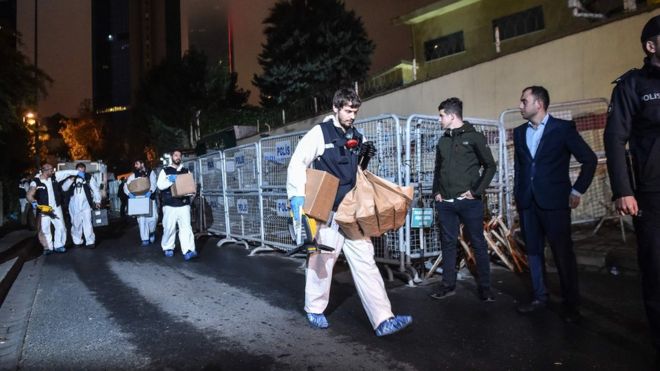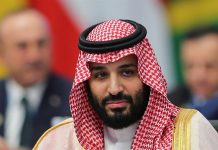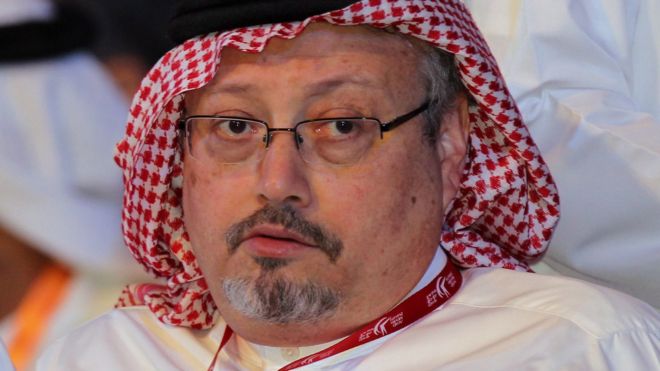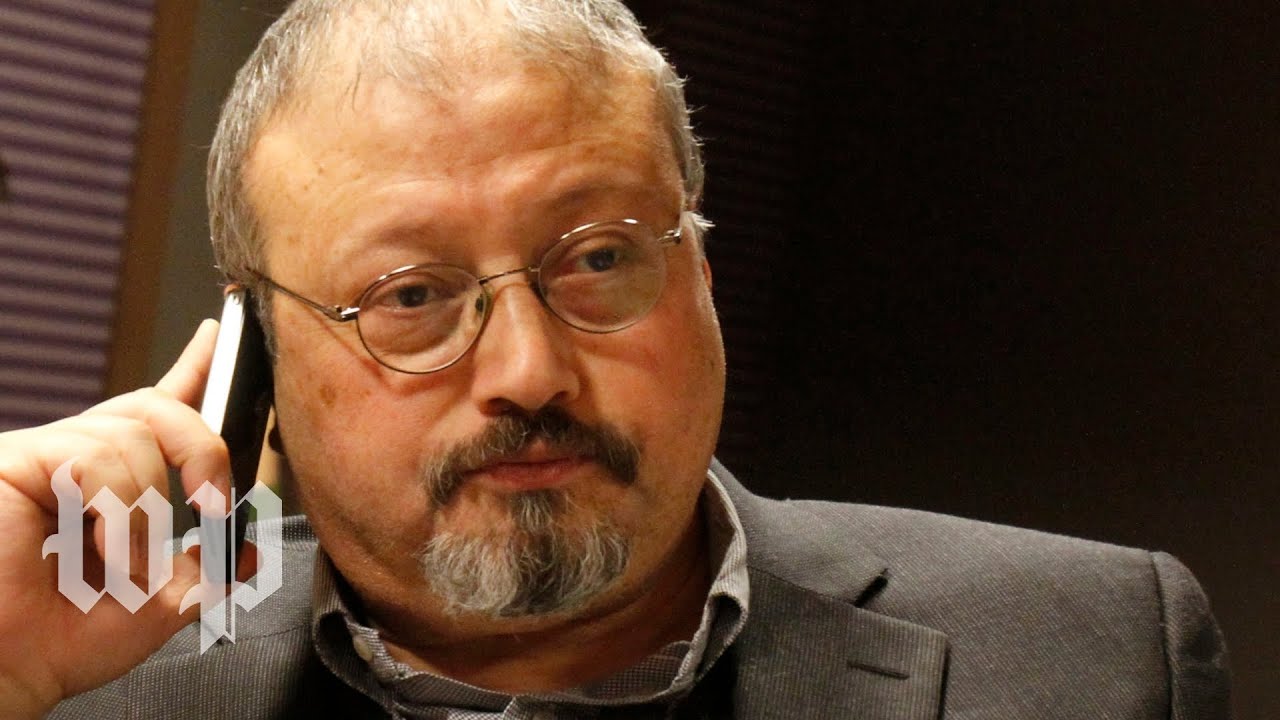
The Washington Post has published missing Saudi journalist Jamal Khashoggi’s last column – a call for press freedom across the Arab world.
The newspaper said it decided to go ahead after accepting Mr Khashoggi was not going to return safely.
The journalist has not been seen since entering the Saudi consulate in Istanbul on 2 October, where Turkish officials allege he was killed.
Saudi Arabia, which denies the killing, allowed investigators inside overnight.
Turkish crime scene teams were seen leaving the consulate early on Thursday morning.
Sources close to the investigation have said they have audio evidence of Mr Khashoggi’s torture and eventual death at the consulate.
However, these have not been made public.
On Wednesday, President Donald Trump said the US has asked for the recording “if it exists”.
Meanwhile, politicians from around the world have said they will not be attending an investment conference in Saudi Arabia next week. However, a number of major businesses – including Goldman Sachs, Pepsi, Thales and EDF – were still intending to go despite growing pressure for a boycott.
What did the last column say?
The Post’s Global Opinions editor Karen Attiah said the column “perfectly captures [Mr Khashoggi’s] commitment and passion for freedom in the Arab world”, adding it was “a freedom he apparently gave his life for”.
Ms Attiah revealed it was submitted the day after Mr Khashoggi went missing. For some time, she “hoped Jamal would come back to us so that he and I could edit it together”, Ms Attiah wrote. But realising this was “not going to happen”, it was decided to publish the column.
In it, Mr Khashoggi – who went into self-imposed exile last year after reportedly being warned by Saudi officials to stop criticising the crown prince’s policies – presented a strong criticism of the state of press freedom in the Arab world, which, he claimed, leaves its people “either uninformed or misinformed”.
“The Arab world is facing its own version of an Iron Curtain, imposed not by external actors but through domestic forces vying for power,” he wrote.
“The Arab world needs a modern version of the old transnational media so citizens can be informed about global events. More important, we need to provide a platform for Arab voices.”
He mentioned the case of his fellow Saudi writer, Saleh al-Shehi, who he said “is now serving an unwarranted five-year prison sentence for supposed comments contrary to the Saudi establishment”.
“Such actions no longer carry the consequence of a backlash from the international community,” he wrote. “Instead, these actions may trigger condemnation quickly followed by silence.”
The result, he said, was that governments had “free rein” to silence the media.
How is Turkey’s investigation progressing?
On Wednesday and into Thursday, investigators spent almost nine hours searching the Saudi consul’s residence, then moving on to the consulate itself about 200m (650ft) away, according to Reuters news agency.
The team included prosecutors and forensics experts in white overalls.
Several vehicles with Saudi diplomatic number plates were filmed by CCTV cameras moving from the consulate to the residence just less than two hours after Mr Khashoggi entered the consulate on the day he vanished.
The consulate building was searched for the first time on Monday.
What is Trump’s latest position?
Saudi Arabia is one of Washington’s closest allies and the Khashoggi disappearance is putting the administration in an awkward position.
Confirming that the tape said to provide evidence of the killing had been requested, Mr Trump added: “I’m not sure yet that it exists, probably does, possibly does.”
Mr Trump said he expected a report from Secretary of State Mike Pompeo who has just been to Saudi Arabia and Turkey.
Source: BBC




